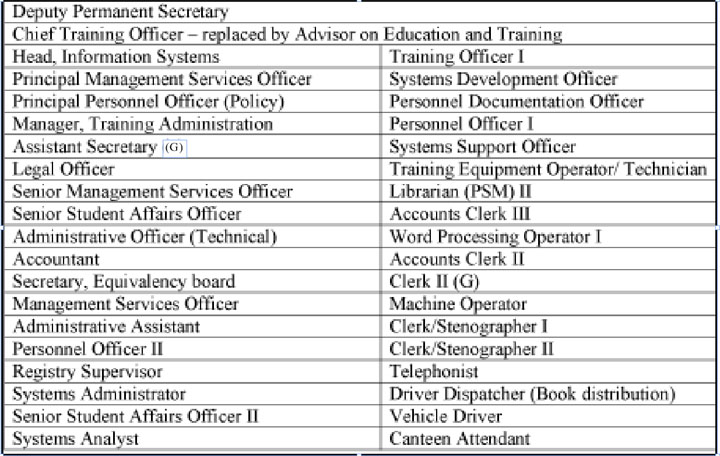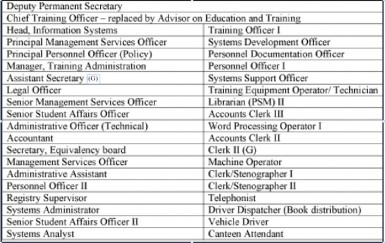Dear Editor,
In recent years there have been two bright signals to the start of the pre-festive season. One is literally the lighting-up project by Courts, and the other the 5% salary increase by which the administration dazzles its public servants – now announced for 2013 (after having missed out in 2012).
It is an intervention about which the GPSU has vigorously complained, moreso at this very stage when its President has been making noises about impending salary negotiations.
He may well regard this hand-out as pre-emptive action. Whatever he may call it, it is an exercise that has much wider implications, with which not only the union, but in fact also all regular public employees must have legitimate cause for complaint. For example, all employees who joined the public service at the minimum of the applicable scale, say ten years (or more) ago, and are the beneficiaries of the annual increase, continue to remain at the minimum (as all scales are themselves adjusted consequentially with each increase). Ten years (or more) after a new employee starts exactly at the same (current) minimum, thus indicating absolutely no recognition of previous experience and/or growth of competence over the relevant employment period. The situation which is known as ‘bunching’ is of course prevalent throughout the public service.
The resultant frustration of the ‘senior’ employee is not infrequently further compounded if he/she has been acting in a higher graded position for an extended period (as many as five years is not unusual).
One other interesting implication is that the ‘contracted employees’ who already earn (tax free) gratuity at 22.5% on salary every six months, are also eligible for the 5% annual increase – an inequitable dispensation, from any perspective.
More fundamentally, however, is the fact that the exercise of ‘annual increases’ takes no account of differentiation in performance, particularly at higher levels, and in jobs for which quality of performance really counts. Public employees must therefore reconcile themselves to the stark fact of their contributions not being recognised and that they are merely members of a herd.
This insensitivity to conscientious hard work, somehow is formally contradicted by circulars which instruct that employees like cleaners, in scale GS01, and office assistants in scale GS02, must be employed on contract, renewable on application (three months in advance), subject to review. Presumably such decisions are based on an evaluation of the employee’s performance. The question, however, is whether he/she is eligible for gratuity or pension?
The imposed annual increase makes a fiction of salary grades – which are intended to reflect the value of jobs arrived at after the consistent application of objective criteria – statutorily the function of the Public Service Ministry.
Such job evaluation exercise has not been conducted in almost two decades, during which there have been substantial technological advances in several job sectors, including of course, that of Information Communication Technology (ICT) as well as in Health and Agriculture, for example.
And yet Volume 1 of the National Estimates is replete with references to ‘Typist/Clerk’ (with no typewriter in sight). Those who talk glibly about ‘human resources’ still have in the public establishment various levels of ‘Personnel Officers’: Chief, Principal, Senior, etc. What an anachronistic, static environment!
Compare this state with the following extract from a Consultancy Report of May 2002, which quoted the Minister of the Public Service as follows:
“The reformed public sector therefore must be infused with new values, a higher sense of mission and purpose, and must be totally conceptualized with a spirit of professionalism.”
What we have witnessed is once more a spin of words, a clear lack of will, and indeed capacity to infuse “… new values, a higher sense of mission and purpose, and … a spirit of new professionalism…” There have been certainly no fundamental changes in… “policies, systems, structures, attitudes and habits,” so that neither staff nor the organisation has “the ability to serve the public more effectively.”
Any effectiveness must be seen in at least a return to ‘tradition’ of rewarding performance; and at the same time to the progressive approach of updating the value of all posts in the public service establishment.
How all of this would be achieved must be cause for wonder, particularly since comparison of the 2012 and 2013 establishments of the Public Service Ministry show the disappearance of the following posts from the National Estimates.
At least one other conundrum related to the annual increase, is that while public service pensioners are eligible for the benefit, the record will show that the near-sighted teachers actually had to negotiate a 5% increase on basic salary.
Interestingly also is the fact that at least selected statutory bodies are awarded similar increases, even though they manage their own salary structures.
For certain GuySuCo’s managers have been beneficiaries of this largesse – presumably in recognition of decreasing yields.
All said and done there is but little realistic hope of change for the better, with the relevant capacity clearly lacking amongst current decision-makers, while those who ‘oppose’ offer no alternative competence.
Yours faithfully,
EB John







